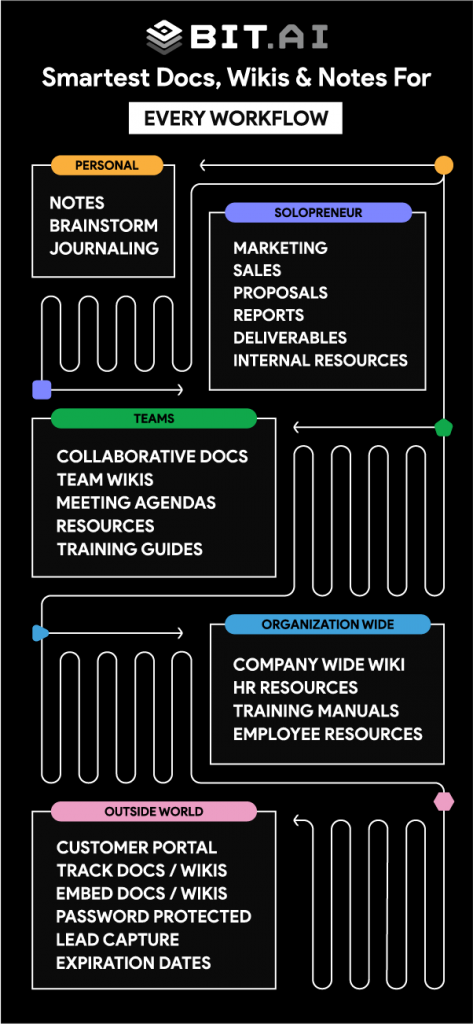Have you ever heard the phrase “put it in writing”? Well, in the world of business, putting things in writing is not just a suggestion – it’s a requirement. That’s where business contracts come in.
A business contract is a legally binding agreement between two or more parties that outlines the terms and conditions of a business transaction. These contracts can cover a wide variety of topics, from the sale of goods to employment agreements to non-disclosure agreements.
But did you know that there are actually 10 different types of business contracts? Each type serves a different purpose and covers different aspects of a business relationship.
Whether you’re a seasoned entrepreneur or just starting out, understanding these 10 types of business contracts is essential to protect yourself and your business. From a basic purchase agreement to a complex joint venture agreement, there’s a contract for every business need.
So, join me as we delve into the fascinating world of business contracts and explore the 10 types of contracts you need to know. Whether you’re negotiating with a vendor, hiring an employee, or entering into a partnership, understanding these contracts will help ensure that your business runs smoothly and successfully.
What Are The Benefits Of Business Contracts?
Business contracts provide numerous benefits for businesses of all sizes, whether you are a sole proprietor or a multinational corporation. Here are some of the key benefits of business contracts:
Legal protection:
A well-drafted contract can provide legal protection for your business interests. It outlines the terms and conditions of your agreement with the other party, and if there is a breach of contract, you have legal recourse to hold the other party accountable.
Prevents misunderstandings:
Contracts help prevent misunderstandings between parties by clearly outlining the expectations and obligations of each party. This can reduce the risk of disputes and promote positive business relationships.
Provides clarity and certainty:
Contracts provide clarity and certainty about the terms and conditions of an agreement. This includes details such as timelines, deliverables, and payment terms. Having a clear understanding of these terms can help both parties stay on track and avoid confusion.
Helps manage risk:
Contracts can help businesses manage risk by identifying potential issues or liabilities and outlining mechanisms for addressing them. This can include indemnification clauses or limitations of liability clauses.
Promotes accountability:
By having a contract in place, both parties are accountable for fulfilling their obligations. This can help ensure that the other party delivers on their promises and can help prevent delays or non-performance.
Helps with enforcement:
If a dispute arises, a contract can provide evidence of the parties intentions and obligations. This can make it easier to enforce the terms of the agreement in court or through alternative dispute resolution mechanisms.
In summary, business contracts provide numerous benefits for businesses. By using well-drafted contracts in all business transactions, businesses can protect their interests, reduce the risk of disputes, and promote positive business relationships.
10 Types of Business Contracts
In today’s fast-paced business world, contracts are essential to protect the interests of all parties involved in a transaction. There are many different types of business contracts, each designed to address specific business needs and concerns.
Here are 10 types of business contracts that are commonly used in various industries:
1. Employment Contract
An employment contract is a legally binding agreement between an employer and an employee. It outlines the terms and conditions of the employment, including the job responsibilities, salary, benefits, and termination provisions. A well-written employment contract can help protect the employer’s business interests, ensure compliance with employment laws, and promote positive relationships with employees.
2. Partnership Contract
A partnership contract is a legally binding agreement between two or more parties who are entering into a business partnership. The contract outlines the rights and obligations of each partner, including the distribution of profits and losses, decision-making authority, and dispute-resolution mechanisms. A partnership contract can help prevent misunderstandings and disputes between partners and provide a clear framework for the partnership.
Read More: Partnership Proposal: Definition, Importance & Steps!
3. Distribution Agreement
A distribution agreement is a contract between a manufacturer or supplier and a distributor. The contract outlines the terms and conditions of the distribution arrangement, including pricing, delivery schedules, and marketing requirements. A distribution agreement can help both parties manage their expectations and responsibilities and promote a successful distribution relationship.
4. Sales Contract
A sales contract is a legally binding agreement between a buyer and a seller. The contract outlines the terms and conditions of the sale, including the purchase price, delivery date, and warranties or guarantees. A sales contract can help prevent misunderstandings and disputes between the parties and ensure that both parties are fulfilling their obligations under the agreement.
5. Service Contract
A service contract is a legally binding agreement between a service provider and a customer. The contract outlines the terms and conditions of the service, including the scope of work, pricing, and delivery schedule. A well-written service contract can help protect the service provider’s business interests, ensure compliance with applicable laws and regulations, and promote positive relationships with customers.
6. Independent Contractor Agreement
An independent contractor agreement is a legally binding agreement between a business and an independent contractor. The contract outlines the terms and conditions of the contractor’s work, including the scope of work, pricing, and delivery schedule. An independent contractor agreement can help clarify the relationship between the parties and protect the business from potential legal and financial liabilities.
Read More: Freelance Contract: What is it & How to write it? (Steps)
7. Influencer Agreement
An influencer agreement is a contract between a business and an influencer who promotes its products or services on social media platforms. The contract outlines the terms and conditions of the influencer’s work, including the type and frequency of posts, compensation, and exclusivity provisions. An influencer agreement can help businesses establish successful influencer marketing campaigns and avoid legal and financial pitfalls.
8. NDA
An NDA or non-disclosure agreement is a contract between two parties who wish to share confidential information with each other. The agreement outlines the terms and conditions of the confidentiality obligations, including the scope of the information covered and the duration of the obligation. An NDA can help protect a business’s trade secrets and other confidential information from unauthorized disclosure.
9. Statement Of Work
A statement of work is a document that outlines the scope of work for a particular project or contract. It includes details such as the project objectives, timelines, and deliverables. A statement of work can help ensure that both parties have a clear understanding of the project requirements and can help prevent misunderstandings or disputes.
10. Security and Privacy Addendum
A security and privacy addendum is a contract addendum that outlines the parties’ obligations related to data privacy and security. It includes provisions related to data protection, breach notification, and compliance with applicable laws and regulations. A well-written security and privacy addendum can help protect a business from data breaches and legal and financial liabilities associated with non-compliance with data privacy laws.
Protect Your Business With Signed Contracts
Are you a business owner who wants to protect your hard-earned assets? One of the most important things you can do is to use signed contracts in all your business transactions.
Why are signed contracts so crucial?
Consider this scenario: You hire a vendor to provide goods or services to your business, but the vendor fails to deliver as promised. Without a signed contract in place, you may have no legal recourse to hold the vendor accountable for their breach of contract. This could lead to financial losses, lost opportunities, and even damage to your business reputation.
On the other hand, with a signed contract, you have a legal document that outlines the terms and conditions of your agreement with the vendor. This means you have clear expectations for what the vendor will deliver, when they will deliver it, and how much it will cost. If the vendor fails to meet these obligations, you have legal recourse to seek damages or terminate the contract.
But creating effective contracts isn’t just about protecting yourself from potential breaches of contract. Contracts can also help prevent misunderstandings, clarify expectations, and promote positive business relationships. By having a signed contract in place, both parties can refer to the document to ensure they are fulfilling their obligations and staying on track.
So, how can you create effective contracts that protect your business interests?
Here are some key tips for creating effective contracts that protect your business interests:
- Start with a clear and concise contract template: To create an effective contract, you need to have a clear understanding of the terms and conditions that you want to include. Using a contract template can help you organize your thoughts and ensure that you don’t leave out any important details. Be sure to customize the template to fit the specific needs of your business and the agreement you’re making.
- Be specific about the terms and conditions: Vague or ambiguous language in a contract can lead to misunderstandings or disputes down the line. Use specific language to define the obligations of each party, including timelines, deliverables, and payment terms.
- Identify potential risks and liabilities: Before entering into any agreement, it’s important to identify potential risks and liabilities that could arise. For example, if you are entering into an agreement with a vendor, you may want to include a clause that limits your liability if their product or service causes harm to your customers.
- Include dispute resolution mechanisms: Even with a well-written contract, disputes can still arise. To prevent lengthy and costly legal battles, include mechanisms for resolving disputes in your contract. This could include mediation or arbitration clauses, which allow both parties to resolve disagreements outside of court.
- Seek legal advice: Finally, it’s always a good idea to seek legal advice before signing any contract. A qualified attorney can review the contract to ensure it is legally binding, fair, and enforceable. They can also help you negotiate any terms that may be unfavorable to your business.
In conclusion, creating effective contracts is essential to promote positive business relationships and protect your business from potential legal and financial pitfalls.
Wrapping Up
In conclusion, business contracts are an essential tool for protecting your business interests and building positive relationships with customers, partners, employees, and other stakeholders.
So, if you’re conducting any kind of business, it’s important to always use contracts to formalize your agreements and protect your interests. Whether you’re a startup or a large corporation, contracts are crucial for the success and growth of your business.
So, don’t take any chances with your business – use contracts for all your business transactions and make sure they are drafted by a qualified attorney to ensure they are legally binding and enforceable. By doing so, you can safeguard your business interests, maintain positive relationships with your partners and customers, and stay ahead of the competition.
Further Reads:
The Benefits of Contract Documents in Project Management!
Contract Management Software: A Guide To Taking Control of Contracts!
Contract Management: Best Practices for Maximizing Profitability!
Agency Agreement: What is it & How to Create it?
Vendor Agreement: What is it and How to Create it?
Operating Agreement: What is it & How to Draft One for your LLC?
Purchase Agreement: What is it & How to Create it?

Related posts
Bit.ai | Watch to Learn More
What is Bit.ai?
Bit.ai is an innovative AI-driven knowledge and Document Managment suite designed to empower knowledge workers by streamlining the creation of, documents, wikis, and notes. With an intuitive interface and seamless integration, Bit.ai acts as a versatile assistant to help you collaborate, generate, organize, and visualize your ideas effortlessly. Whether you are drafting a report, managing a project, collaborating with your team or clients, or brainstorming new concepts, Bit.ai brings intelligence and creativity to every aspect of your work process.


